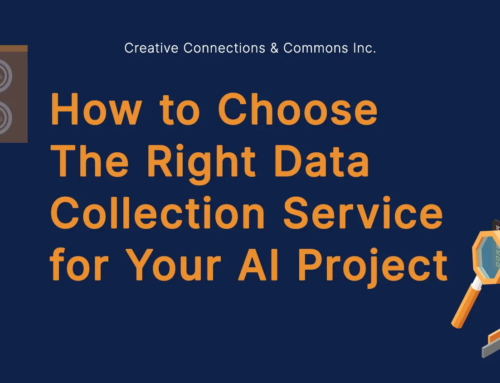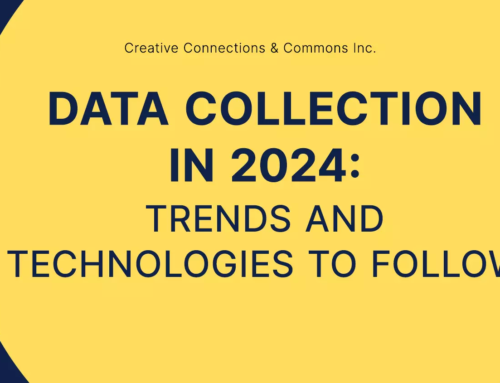Key Takeaways:
- Data collection for small businesses has many challenges but comes with more benefits.
- Data collection is one of the many small business growth strategies contributing to customer understanding, better decision-making, operational efficiency, and improved sales.
- The role of data for business led to the rise of data analytics technologies, all of which aim to help corporations access valuable insights.
- Data in small business settings requires a clear objective, the right source, the best technology, robust security measures, and regular updates.
Table of Contents:
- Challenges Small Businesses Face in Data Collection
- Key Benefits of Data Collection for Small Businesses
- Strategies for Effective Data Collection
Data collection, the systematic information gathering, measuring, and analysis, is one of the most crucial small business growth strategies. Unfortunately, not all small businesses know its impact or how to implement it to drive growth. When you fully understand the power of data collection for small businesses, you open your business to a world of opportunities.
Challenges Small Businesses Face in Data Collection
Did you know that 90% of all businesses worldwide are small businesses? Yes, the backbone of every economy comprises companies like yours! Small businesses share many things in common, and struggles in data collection are one of them.
- Limited Sources: Data collection needs time, budget, and people, but small businesses have small teams. Limited sources make building and sustaining a program solely on data collection difficult.
- Limited Reach: If you do make efforts in data collection, they are only effective if they reach enough people and the right people. Small businesses have a limited customer base and reach, so getting meaningful insights can be tough.
- Complex Tools: The role of data for business has brought forth many tools. Unfortunately, some bring more confusion than clarity. The only way to address this problem is by learning, but this solution also demands time, effort, and capital.
- Non-Integrated Technology: Small businesses use software for various functions. If your data collection tool does not integrate with others, you can end up with complicated workflows that can contribute to more errors and delays.
- Incompetent Security Features: Data in small business settings is always at risk because security features are often left out due to limited resources. With increased sophistication in fraud and cybercrime, data collection without robust security measures results in significant losses.
- Lack of Data Interpretation Skills: Data collection is only meaningful when you can interpret it. Small businesses may not have the skills or resources to analyze data properly, leading to missed opportunities and inaccurate insights.
Key Benefits of Data Collection for Small Businesses
When the challenges are manifold, it is often easier to overlook the opportunities that lie ahead. Before you see data collection as a burden, discover (or rediscover) its purpose for your small business.
Customer Understanding
Data collection is like walking up to a stranger with the goal of getting to know them. You may ask them how they are, where they are from, what they do, and many more questions until you get a sense of who they are. Data collection empowers small businesses to gain a deeper understanding of their customers through insights into what they prefer, how they behave, and the trends they start and follow.
For instance, purchase histories help you identify which products are popular and which are seasonally driven. In contrast, surveys and feedback forms can yield qualitative data on customer satisfaction and desired improvements. Whether through numbers or words, data collection tells you who your customers are and what they want.
Note: There are various methods to collect data. Some popular methods include interviews, questionnaires, surveys, observations, and focus groups.
Better Decision-Making
The more you understand your customers, the better you know how to serve them. Effective data collection provides actionable insights that guide decisions. For example, at CCC, we found through data collection and analysis that many manga publishers need help translating their content into various languages besides English. Consequently, we have been actively expanding our translation services to meet this increasing demand.
Small businesses can also analyze sales data to reveal peak buying times and optimize inventory levels accordingly. You can also assess the performance of your promotional campaigns and refine your next strategies based on your findings. Data collection bids guesswork goodbye; you know exactly what you can achieve and how.
Operational Efficiency
Data collection helps you identify bottlenecks and streamline your processes. Take, for example, a small eatery that tracks peak hours and customer order preferences. If the data shows that most customers order takeout during lunchtime, they can adjust their staffing levels and menu offerings to meet this demand.
Similarly, a small marketing company can use data to gauge the performance of their digital campaigns and optimize their return on investment. They can compare data from different platforms, see which channels drive the most conversions, and center their actions on those areas.
Improved Sales
Lastly, effective data collection efforts increase profitability for small business owners and teams. How? The more efficient your operations are, the more you save and can invest back into your business. The more effective your business decisions are, the more you grow. Ultimately, the better you serve your customers, the more likely they will return.
Pro Tip: Make your data collection approach measurable and scalable to ensure gradual but consistent growth. All the benefits do not happen with just one survey or interview!
Strategies for Effective Data Collection
Since the benefits of data collection for small businesses outweigh the challenges, it is best to focus on the solutions to make the program work for you. Let us share some tips that we have found helpful in our own experience at CCC.
- Define Your Objectives: Before kickstarting any data collection effort, you must know what you want to achieve. Do you aim to learn how satisfied your customers are with your products and services? Or do you want to understand the performance of your business strategies? Having a clear objective will set up a roadmap for your process; you will not end up with random data that does not lead you to any insights.
- Choose the Right Sources: Besides what you want and need, you must also know who you want to talk to and where they are. You can have primary sources or data collected directly from your customers, and secondary sources, such as existing data sets, publications, or historical documentation. Your sources should yield the most relevant and accurate information based on your objectives.
- Select the Right Methods: Different objectives and sources require different data collection methods. Choose the technique that best suits your team’s goals and sources. For example, surveys or interviews could be the best approach if you want to know your customers’ thoughts and opinions, while analytics tools might be more suitable for tracking your business performance.
- Invest Wisely in Technology: Advancements in technology have made it easier to collect data. Invest in tools and software to automate the process and benefit from accurate data analysis. Explore customer relationship management (CRM) systems, marketing automation tools, and online survey platforms with capabilities that support your team’s needs.
Pro Tip: Work with professional data collection service providers like CCC. We leverage advanced technology and specialized techniques to collect and analyze data on your behalf, helping your small team focus on other core aspects of your business.
- Prioritize Data Protection: The easier it has become to collect data, the more critical it has also become to protect it. Have robust security strategies, such as encryption and regular data backups and comply with relevant laws, particularly the General Data Protection Regulation (GDPR). Make your program avoid legal consequences and maintain customer trust.
- Update Your Processes: As your business evolves, so should your data collection strategies. Regularly review your processes and assess how they align with your current objectives and sources. Are your surveys still relevant to your target audience? Is your current tool still efficient? Change methods or invest in new technology if necessary so your business never falls behind.
If you are yet to build a data collection strategy or think your current one can be better, CCC would like to know how we can help. Contact our data experts today!









